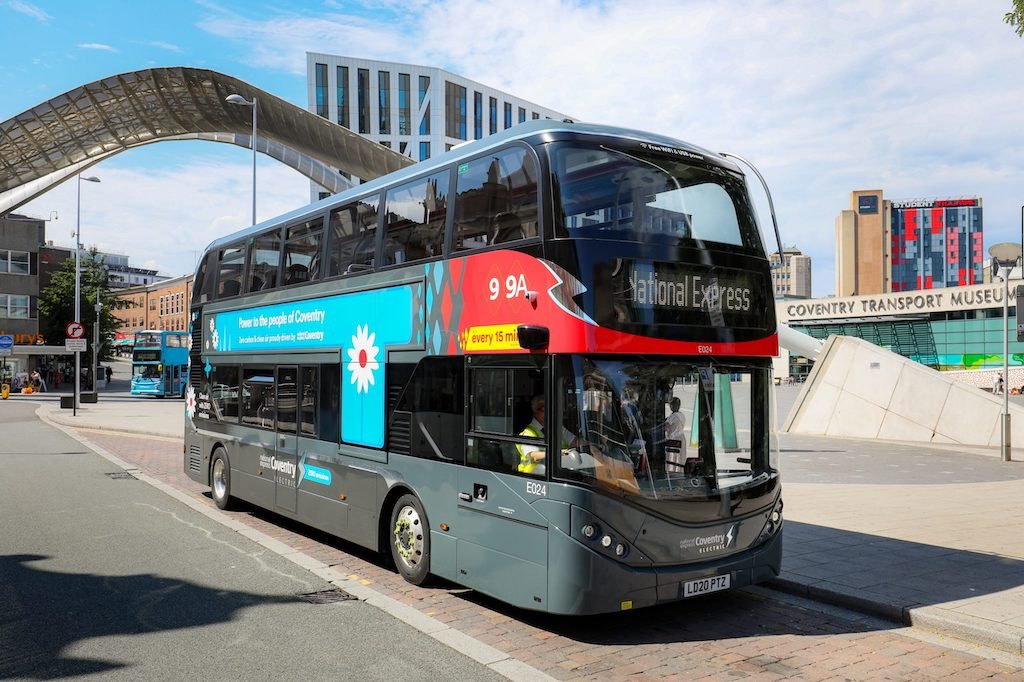Government funds next 1,000 zero-emission buses
The British government is to fund nearly a further thousand zero-emission buses across England, by pledging an additional £200 milllion investment through the Zero Emission Buses Regional Area (ZEBRA) scheme originally launched last year.
The Department for Transport says the new funds build upon previous commitments, namely:
£71 million to support up to 335 new zero emission buses in five areas
a further £50 million funding for the UK’s first All Electric Bus City, Coventry, supporting up to 300 buses. The first orders have already been placed
100 buses funded by previous funding schemes
Hundreds more zero emission buses have been funded in London, Scotland, Wales and Northern Ireland.
It means, says the government, it is on track to deliver its commitment to fund a total of 4,000 zero-emission buses to “drive forward the UK’s progress on its net zero ambitions” and to “build and rebuild those vital connections to every part of the UK”.
The announcement, confirmed by Transport Secretary Grant Shapps, is part of the government’s wider £3 billion National Bus Strategy to “significantly improve bus services, with new priority lanes, lower and simpler fares, more integrated ticketing and higher frequencies.”
The areas whose business cases were approved and will be receiving funding are:
Norfolk
North Yorkshire
Portsmouth
Blackpool
Nottingham
Greater Manchester
Hertfordshire
South Yorkshire
Oxfordshire
West Midlands
York
West Yorkshire
The West Midlands Combined Authority (WMCA) is one of the biggest recipients. It announced it is receiving £30 million under the ZEBRA programme to fund 124 hydrogen fuelled buses. Green Hydrogen generated from renewable energy, it says, will ensure the scheme is fully zero emission.
Transport for West Midlands (TfWM), which is part of the WMCA, will now work with bus company partners and the hydrogen production industry to get the fleet up and running.
Pete Bond, director of integrated transport services with TfWM said, “Buses are the most used form of public transport in the region and this is welcome Government investment in our network. These hydrogen buses shows how the West Midlands is leading the way on decarbonising our transport and making good progress on achieving our net-zero targets.
“Not only is it welcome to support our work to improve the air we breathe, but new modern buses, accompanied by the new bus lanes and priority measures being introduced will offer commuters a reliable and comfortable alternative to the car and traffic congestion.”
"It also presents an incredible opportunity to make the West Midlands a world leader in the new Hydrogen economy”
The government has also launched a public consultation seeking views on setting a specific date between 2025 and 2032 for ending the sale of new non-zero emission buses.
This would mean that, from 2032 at the very latest, the sale of all new buses, powered either in part, or totally, by an internal combustion engine would cease to be allowed.
Any new buses sold from that date would need to be fully zero-emission at the tail pipe and the end of sales would apply across the whole of the UK.
Such a move would bolster the market for zero-emission buses, making them the default choice for operators to transition sooner.

